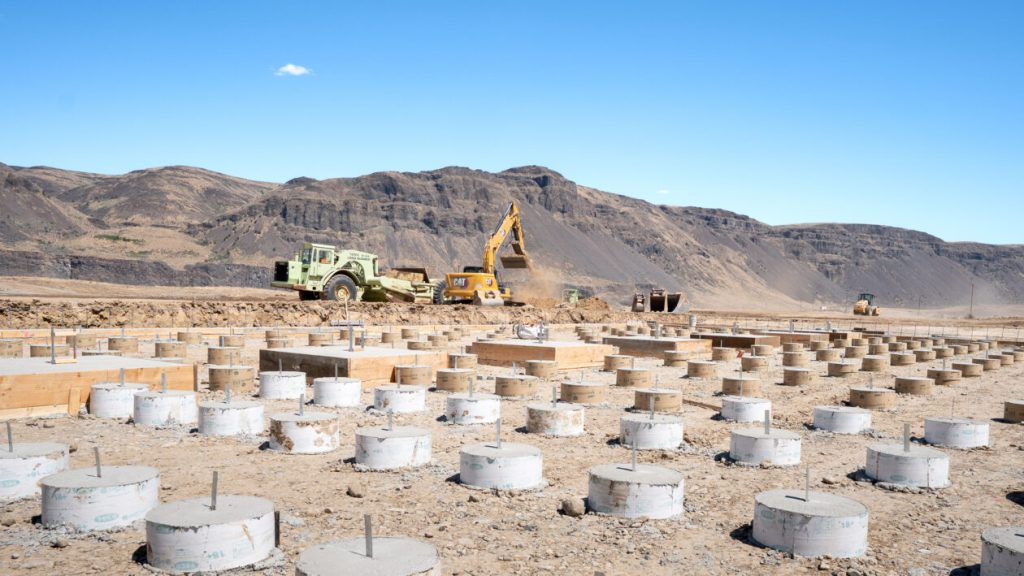Helion Energy Advances Towards First Commercial Fusion Plant
Helion Energy recently achieved a significant milestone in its ambitious journey to create the world’s first commercial fusion power plant. The Washington-based company secured a Conditional Use Permit from Chelan County, clearing the path for the next phase of construction on its groundbreaking 50-megawatt fusion facility, aptly named Orion. This critical development follows the groundbreaking ceremony held in July 2025 at the project site in Malaga, a small town nestled along the Columbia River in Central Washington. The permit specifically allows for the construction of the fusion generator building, representing a pivotal advancement in making fusion energy—the same process that powers our sun—a commercial reality. This achievement comes after a thorough public notice and comment period, reflecting the company’s commitment to transparency and community engagement.
“As a company of builders with a single-minded focus on making electricity from fusion commercially practical, we couldn’t be more excited to move into this next phase of construction for the Orion power plant,” expressed Helion CEO David Kirtley in a statement following the permit approval. His enthusiasm underscores the monumental nature of what Helion is attempting to accomplish—harnessing the power of fusion in a controlled, commercially viable manner. The project has already navigated substantial regulatory hurdles, including receiving a Mitigated Determination of Non-Significance through Washington state’s comprehensive environmental review process (SEPA). This environmental clearance suggests that the project can proceed with appropriate mitigation measures in place, balancing technological innovation with environmental responsibility. The facility is being constructed on land leased from the Chelan County Public Utilities District, creating a partnership between the innovative private enterprise and the local public utility.
The fusion project has garnered strong support from local officials, who see it as continuing the region’s legacy of energy leadership. Chelan County Commissioner Kevin Overbay praised Helion’s extensive community outreach efforts and highlighted the historical significance of potentially hosting the world’s first commercial fusion plant. “Central Washington is known as the Buckle of the Power Belt for its foresight decades ago of bringing hydropower to the state,” Overbay noted. “To be the home of fusion energy would enhance the legacy of our area as a continued leader in clean energy production.” This enthusiastic backing from local leadership reflects a broader recognition of fusion’s potential to transform the energy landscape. Central Washington, with its established hydroelectric infrastructure, seems particularly fitting as the birthplace for what could be the next revolutionary clean energy technology.
While construction progresses in Malaga, Helion continues its intensive research and development work at its Everett, Washington headquarters. The company faces the enormous challenge of developing technology that can achieve what has long been considered the holy grail of energy production—commercially viable fusion power. Unlike conventional nuclear fission, which splits atoms to release energy but produces radioactive waste, fusion combines light atomic nuclei to form heavier ones, releasing tremendous energy in the process while generating minimal waste. The technical hurdles are immense: fusion requires creating and maintaining temperatures hotter than the sun’s core in a controlled environment. Helion has dedicated twelve years to R&D efforts, developing multiple prototypes and refining its approach to this formidable scientific challenge. The company has attracted substantial financial backing, raising more than $1 billion from investors who recognize the potential world-changing impact of successful fusion energy.
Helion’s business model has already secured a significant commercial partner, with Microsoft entering into an agreement to purchase electricity from the Orion plant to power its data centers in the region—contingent, of course, on the technology delivering as promised. This partnership represents a remarkable vote of confidence from one of the world’s leading technology companies and provides Helion with a guaranteed customer for its power, assuming the technical challenges can be overcome. The Microsoft deal also highlights the potential symbiosis between fusion energy and the tech industry’s growing power needs, particularly for energy-intensive operations like data centers. If successful, this arrangement could serve as a template for how fusion energy might be integrated into the existing power ecosystem, providing clean, reliable electricity to power-hungry industries while reducing carbon emissions.
The pursuit of commercial fusion energy extends beyond Helion’s efforts, with various approaches being developed by competitors around the world. In a related development announced the same day as Helion’s permitting news, Google DeepMind revealed a partnership with Boston-based Commonwealth Fusion Systems to apply artificial intelligence in fusion energy research. This collaboration illustrates the increasing convergence of cutting-edge technologies—AI and fusion—in addressing the world’s most pressing challenges. As Helion advances construction on what could be the world’s first fusion power plant, the race to achieve commercial fusion continues to accelerate, driven by technological innovation, substantial investment, and the urgent need for abundant clean energy solutions. Whether Helion will be the first to cross this historic finish line remains to be seen, but their progress in Central Washington represents a tangible step toward turning fusion from a scientific aspiration into an everyday reality—potentially revolutionizing how humanity generates and consumes energy in the process.














